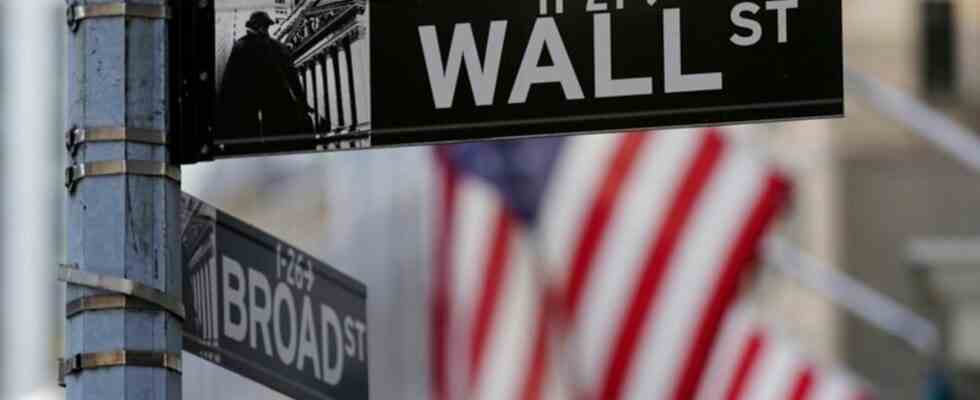US exchanges
USA: Trading day and quarter very weak – March positive
The most important indices are all showing a clear minus. Photo: Richard Drew/AP/dpa
© dpa-infocom GmbH
Wall Street is still in the red and the war against Ukraine is weighing on investor sentiment. But there is also good news.
The US stock exchanges have greatly expanded their losses from the previous day and closed slightly above their daily low. The Dow Jones Industrial dropped well below 35,000 points again. Pressure came especially in the last hour of trading. Since the beginning of the year, the most important indices have all recorded a significant minus. The monthly balance remained positive.
The Dow ended the last day of March down 1.56 percent to 34,678.35 points. The S&P 500 fell 1.57 percent to 4530.41 points. The Nasdaq 100 fell 1.55 percent to 14,838.49 points.
effects of war
Russia’s ongoing war against Ukraine also weighed on investor sentiment. De-escalation is still not in sight. Rather, the Pentagon said that the Ukrainian capital, Kyiv, was still at risk from Russian airstrikes. Russia’s talk of de-escalation is “beautiful rhetoric,” according to a senior Pentagon official. US President Joe Biden said there was no clear evidence that Russia was withdrawing its troops from the Kyiv area as announced.
Investors also weighed the impact of a US government decision. This releases strategic oil reserves because of the high fuel prices resulting from the Ukraine war.
After the first three months of the new year, the Wall Street Index Dow is 4.6 percent in the red. After climbing to a record level of just over 36,950 points right at the beginning of the year, inflation and monetary policy tightening measures became increasingly important. Five weeks ago, Russia then started the war against Ukraine, which pushed the most well-known Wall Street index to around 32,270 points and thus to its lowest level in a year. In the most recent recovery, however, the Dow made up for two-thirds of the setback. In March, there was an increase of 2.3 percent.
Development of the technology index
The Nasdaq 100 technology index performed significantly worse in the past quarter, losing 9.1 percent. The turnaround in interest rates initiated by the US Federal Reserve prompted many investors to part with their tech darlings. But since its March low, the Nasdaq selection index has also made it more than halfway to the record of just over 16,760 points from November. His monthly plus amounts to at least 4.2 percent.
Among the individual values in the Dow, the papers from Walgreens Boots Alliance stood out, losing 5.7 percent at the bottom. The drugstore and pharmacy chain benefited from the sale of corona vaccinations and tests in the second quarter of the financial year and performed better than expected. However, investors reacted with disappointment to the annual forecast for earnings per share adjusted for special effects, which is expected to rise in the low single digits.
AMD and Baidu, among others, attracted interest on the Nasdaq. The British investment bank Barclays canceled its recommendation for the shares of the processor manufacturer AMD and lowered the price target to 115 US dollars. Analyst Blayne Curtis wrote that while Advanced Micro Devices is likely to steal further market share from its competitor Intel in the coming years, growth is likely to suffer from the situation in many end markets. AMD then went down 8.3 percent.
Baidu, which was down 2.6 percent the day before, fell another 8.0 percent. On Wednesday, the US Securities and Exchange Commission (SEC) put the Chinese search engine operator on the list of companies at risk of being delisted.
The euro closed at $1.1067. The European Central Bank set the reference rate in Frankfurt trading at 1.1101 (Wednesday: 1.1126) dollars. The dollar thus cost 0.9008 (0.8988) euros.
On the US bond market, government bonds gave up most of their gains in late trading. The futures contract for ten-year Treasuries (T-Note Future) recently rose by 0.03 percent to 122.66 points. The yield on ten-year government bonds was 2.338 percent.

